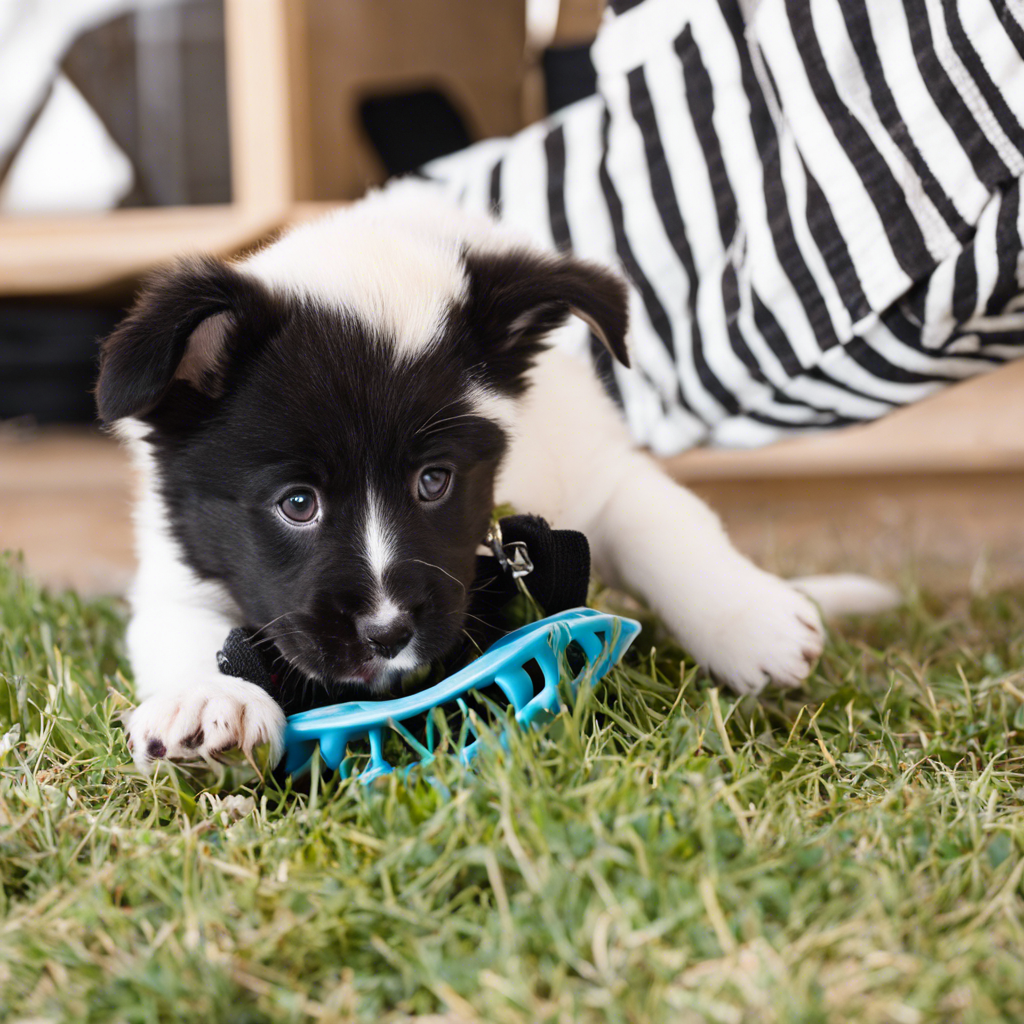Puppy teething is an exciting yet challenging phase in your furry friend’s development. It’s a time when your adorable bundle of energy explores the world through their mouth, and everything becomes a potential chew toy! While this phase can be a test of your patience, understanding and managing it effectively will ensure a happy and healthy journey for both you and your puppy.
During the teething period, puppies experience discomfort as their baby teeth emerge and eventually fall out to make way for adult teeth. This process typically begins around 3-4 months of age and can last until they’re about 6-8 months old. It’s a crucial developmental stage that requires your guidance to establish good habits and protect your belongings from becoming chew victims!
Puppies, much like human babies, instinctively seek relief from the soreness and itching associated with teething. They’ll gnaw on anything they can get their tiny paws on, from your favorite shoes to the table legs. This behavior is completely normal, but it’s essential to redirect their attention to appropriate chew items.
So, what can you do to survive (and thrive) during this chewing frenzy? First, provide your puppy with a variety of chew toys designed specifically for their teething needs. Rubber toys, frozen treats, and durable bones can offer much-needed relief and entertainment. Rotate these toys regularly to keep their interest piqued and provide new textures and challenges.
– The market offers a plethora of teething toys, from rubber treats with hidden treats to frozen carrot sticks that can soothe sore gums. Some pet stores even provide ‘puppy teething kits’ with a variety of options to keep your pup entertained.
Encourage positive chewing habits by praising your puppy when they chew on their toys. This positive reinforcement will help them understand what is acceptable to bite. Additionally, consider puppy-proofing your home to minimize the risk of damage and accidents. Keep valuable items out of reach and provide a safe, dedicated space for your puppy to explore and chew.
When you catch your puppy chewing on something they shouldn’t, redirect their attention to an appropriate chew toy and firmly say ‘no’ to discourage the behavior. Consistency is key here. With patience and repetition, they’ll soon learn what’s off-limits.
Another effective strategy is to provide mental stimulation and physical exercise to tire your puppy out. Engaging in interactive games, obedience training, or even a good old-fashioned game of fetch can help them expend energy and reduce the urge to chew destructively. A tired puppy is less likely to become a chewing machine!
Remember, teething is a temporary phase, and with your guidance, your puppy will learn appropriate chewing habits. Be patient, provide plenty of appropriate chew toys, and set clear boundaries. Before you know it, your pup will have a full set of adult teeth, and the teething woes will be a distant memory. Stay positive, stay consistent, and enjoy the journey of raising a well-behaved canine companion.
In summary, Puppy teething is a crucial phase that demands your attention and understanding. By offering suitable chew toys, creating a safe environment, and teaching good habits, you can navigate this period successfully. Always supervise your puppy and provide positive reinforcement. With time, they’ll grow out of this chewing phase, leaving behind those adorable puppy teeth and countless memories of their teething adventures!

